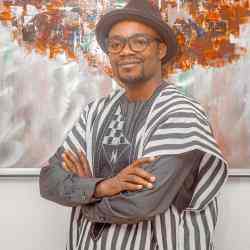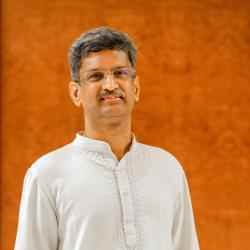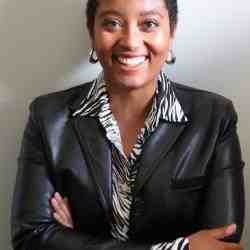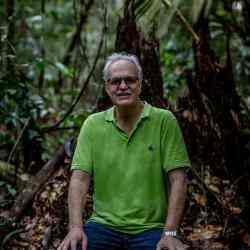A nova ideia
In 2003, Leonora created Ateliê de Idéias (the Ideas Workshop) to address problems facing low-income urban communities in Brazil, including the lack of adequate housing, low levels of civic participation, and insufficient income-generating opportunities. Through the Idea Workshop’s Bem Morar (Living Well) program, she administers housing loans that enable the construction and renovation of affordable housing in a low-income residential area in Vitoria. In order to facilitate the generation of related social, economic, and environmental gains, she has coupled those loans with a strong governance model, taking advantage of local assets and incorporating “solidarity economy” approaches. Leonora strengthened and expanded her initiative in 2006 by creating Banco Bem (Bank Well), the first community bank in Brazil to issue housing loans. Today, she also supports related entrepreneurial undertakings, offers courses and technical assistance in civil construction, and promotes the use of clean technologies. Leonora’s initiative has brought about a number of positive results in the community. For instance, Bem Morar’s renovation and construction costs are roughly 25 percent lower than those incurred by public institutions in comparable affordable housing ventures. Moreover, Bem Morar’s reliance on environmentally-friendly construction technologies significantly reduces water and electricity bills. The Bem Morar project has also helped create new jobs in the area, and bring about community-generated income. Leonora is addressing housing needs in innovative ways that improve the quality of life of local residents in important, palpable ways. Today, families are empowered by her training programs and are able to move freely in neighborhoods where drug trafficking had once been rampant. Currently, Leonora is developing a new program with government support to turn her initiative into a model for public housing projects.
O problema
Low income communities in Brazil’s urban centers face a range of social ills, including violence, drug trafficking, low education levels, and excessively rapid population growth. The average family is led by a single-mother, and survives on less than minimum wage. Furthermore, the community’s social vulnerabilities are exacerbated by inadequate social participation, insufficient income generation opportunities, and a lack of proper and affordable housing.
Housing is critical issue affecting urban populations in Brazil and is intimately related to other social and economic issues as well. Unfortunately, many governmental and citizen sector initiatives continue to sponsor unidimensional housing programs that lack long-term vision. Housing programs have the potential to be a means of development that offers tangible benefits to families and generates wealth and employment for the community, and offer the possibility of building collective spaces. Most housing initiatives, however, fail to capitalize on these opportunities. As a result, new or renovated housing is often overpriced, poorly constructed, and inaccessible for most low-income households.
The failings of such housing initiatives are also due to a lack of participation among community members in most ongoing housing initiatives, partly because of the inaccessibility of technical assistance programs that would allow people to participate in the construction of their own homes. Instead, homes are built by poorly-trained construction workers who waste enormous amounts of materials on energy-inefficient dwellings that impose high water and electricity costs on their inhabitants. Newly constructed homes rarely include clean technologies that would contribute to the families’ monthly savings, nor do they foster reliance on local workers or the use of space in an environmentally friendly way.
A estratégia
Leonora created Banco Bem (Bank Well), an Ateliê de Idéias initiative and Brazil’s first community bank to make housing loans accessible to low-income communities. Each housing loan is conditional to the employment of the local workforce, the use of construction materials from neighborhood businesses, and reliance on clean and affordable technologies. By using social currency, Leonora’s housing loan system contributes to the socio-economic as well as environmental development of the community.
In order to encourage civic participation, Leonora set up the Fórum Bem Maior (the Greater Good Forum). Within it, loan provisions are managed by a committee in the local governance structure that analyses the credit forms pre-approved by the applicant’s neighbors. Defining priorities locally enables the community to take ownership or its development, and also allows local community leaders to act as representatives in negotiations with government authorities. In doing so, Leonora has started sustainable development processes that are representative of the community’s needs.
A key ingredient of the Ateliê’s work is assuring quality housing units while also employing local workers. Specifically, she achieves this through the Bem Morar (Living Well) program. This initiative complements Banco Bem’s housing loans with masonry courses for women and technical assistance services in civil construction. With instruction, workers are taught safe, efficient and environmentally-friendly construction methods.
Through her work, Leonora also ensures the environmental sustainability of the Ateliê’s activities by advocating for the use and accessibility of clean technologies among low-income populations. She recognizes that green technologies can improve quality of life standards, while also providing economic benefits by lowering monthly energy and water costs.
Since the start of her initiatives, the low-income community in which Ateliê operates has transformed from an area with few citizen organization (CO) programs and substantially higher levels of violence than Rio de Janeiro, to one that is now recognized as a “Territory of the Good.” In May 2009, the Ateliê de Idéia became the first CO in the country to receive federal government support for affordable housing initiatives, and Leonora hopes that her undertaking in Vitoria will become the model for public housing projects.
A pessoa
At the age of thirteen, Leonora became actively involved in the Catholic Youth Movement. Although she often moved from city to city with her family, she took on leadership roles in the groups she was involved in. During her time leading initiatives in urban slums, orphanages and rest homes, Leonora became increasingly aware of the reality facing low-income communities.
While working as a volunteer at an orphanage, Leonora discovered that staff members of the institution were engaged in sexual exploitation of children and youth, child trafficking, and drug trafficking, among other crimes. Although she was only 18 years old at the time, she led a two-year effort to denounce these grave violations, and was able to disrupt the orphanage’s activities, but only for a short while. Through her experience, she learned that greater civic participation and strong mechanisms of local governance could have prevented such crimes.
After taking on volunteer and professional positions in community involvement, Leonora became interested in development, and realized that a lot can be accomplished with limited resources, as long as community members are informed and have a voice. When she moved to Vitória with her husband, Leonora began working with low-income communities on income-generating initiatives. The relationships that she developed with the women from the community during that venture motivated her to search for a more ambitious means of addressing the economic and social needs of marginalized people on a grander scale.




